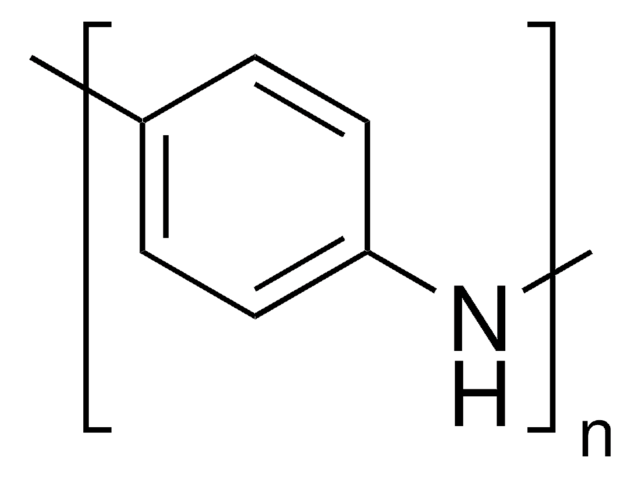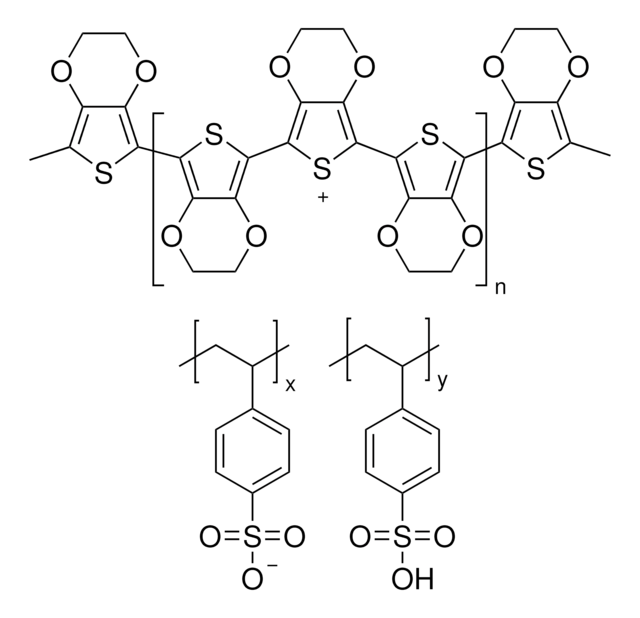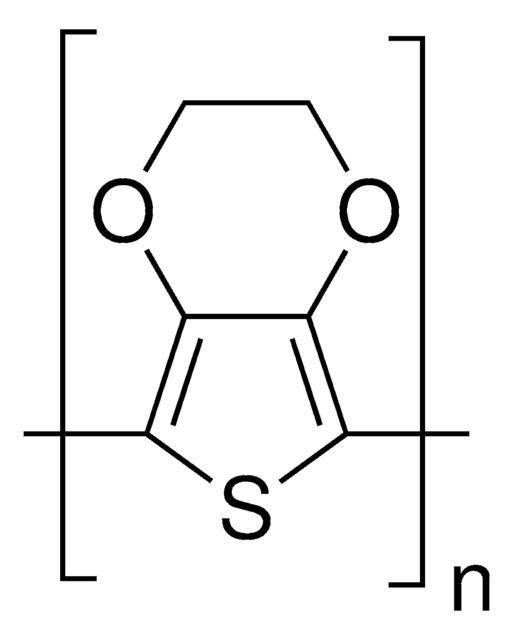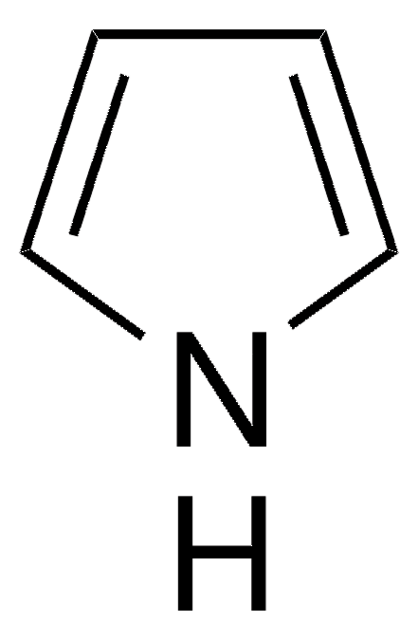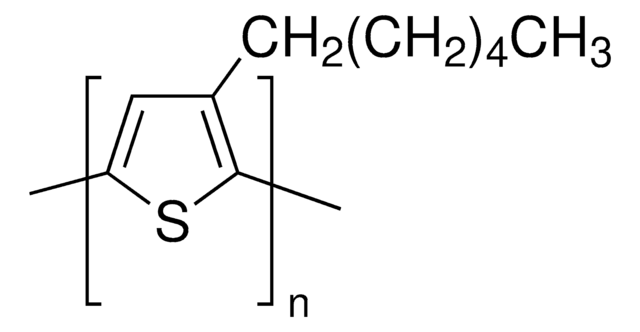577030
Polypyrrole
conductivity 10-50 S/cm (pressed pellet)
Synonyme(s) :
PPy
About This Item
Produits recommandés
Forme
solid
Contient
proprietary organic sulfonic acid as dopant
Caractéristiques du produit alternatif plus écologique
Design for Energy Efficiency
Learn more about the Principles of Green Chemistry.
sustainability
Greener Alternative Product
Solubilité
H2O: insoluble
organic solvents: insoluble
Autre catégorie plus écologique
, Enabling
InChI
1S/C4H5N/c1-2-4-5-3-1/h1-5H
Clé InChI
KAESVJOAVNADME-UHFFFAOYSA-N
Vous recherchez des produits similaires ? Visite Guide de comparaison des produits
Description générale
PPy may be prepared by a standard electrochemical technique. It may also be prepared by reacting -napthalene sulfonic acid (NSA) and ammonium peroxo-disulfate in aqueous medium. The charges on the surfaces can be easily modified by doping the polymer during its synthesis. Solubility and conductivity measurements of PPy doped with camphor sulfonic and dodecyl benzene sulfonic acid have been reported. Lectrosensitivity and lower oxidation potential of PPy make it potentially useful for drug delivery, chemical sensors, batteries, ion selective electrodes, biosensor and biochemistry research.
Application
- electrode materials for sensors used in electrocardiography (ECG)
- formation of electrode material for a variety of energy storage applications
- encapsulation of lithium sulfide (Li2S) as a high performance cathode material
Conditionnement
Autres remarques
Code de la classe de stockage
11 - Combustible Solids
Classe de danger pour l'eau (WGK)
WGK 3
Point d'éclair (°F)
Not applicable
Point d'éclair (°C)
Not applicable
Équipement de protection individuelle
dust mask type N95 (US), Eyeshields, Gloves
Faites votre choix parmi les versions les plus récentes :
Déjà en possession de ce produit ?
Retrouvez la documentation relative aux produits que vous avez récemment achetés dans la Bibliothèque de documents.
Les clients ont également consulté
Articles
By altering the physicochemical properties, smart or intelligent drug delivery systems can be designed to deliver therapeutic molecules on-demand. Learn more about the application of stimuli-responsive materials in drug delivery.
The application of conducting polymers at the interface with biology is an exciting new trend in organic electronics research.
While dye sensitization as the basis for color photography has been accepted for a very long time,1 attempts to use this principle for the conversion of solar light to electricity generally had resulted only in very low photocurrents, below 100 nA/cm2.2
Professor Chen (Nankai University, China) and his team explain the strategies behind their recent record-breaking organic solar cells, reaching a power conversion efficiency of 17.3%.
Notre équipe de scientifiques dispose d'une expérience dans tous les secteurs de la recherche, notamment en sciences de la vie, science des matériaux, synthèse chimique, chromatographie, analyse et dans de nombreux autres domaines..
Contacter notre Service technique

